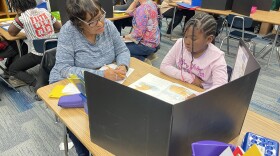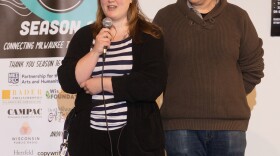Half of Wisconsin is covered in forests, so managing all that land is no easy task. It’s up to the Wisconsin Division of Forestry, which falls under the Department of Natural Resources (DNR), to keep the land healthy.
The forestry division works with federal, county, tribal and private landowners. It’s a team of about 420 people scattered across the state. And, the person leading this division is Heather Berklund.
Last month, Berklund was named chief state forester — the first woman to hold the position in state history.
Her forestry career spans two decades. Berklund studied natural resources at UW-Stevens Point and was hired by Wisconsin’s DNR right out college. She is now working in northern Wisconsin, near Rhinelander.
"I really appreciated the Division of Forestry’s purpose of working in partnerships because there is such a wide plethora of different sectors and partners that we work with. ... It’s really been a benefit,” she says.
Berklund says to keep healthy ecosystems, the forestry division has many different goals that all work together. From air quality to wildlife management to water protection, all that, she says, falls under their work while also keeping space for recreation inside Wisconsin’s State Parks.
“We’re providing that technical expertise to make sure that we do keep that health of the forests, get rid of the invasives, provide buffers along lakes for increased water quality — so a multitude of opportunities for management and opportunities for uses,” she explains.
Despite being the first woman to hold the position, Berklund says the industry still needs more women and more diversity.
“In general, the forestry professional, I think, is just one that is lacking in diversity overall nationwide and so it’s definitely a movement across the nation in recognizing how can we get more diversity, more women, more people of color kind of embedded into the natural resources profession,” she says.
Have an environmental question you'd like WUWM's Susan Bence to investigate? Submit below.
_







